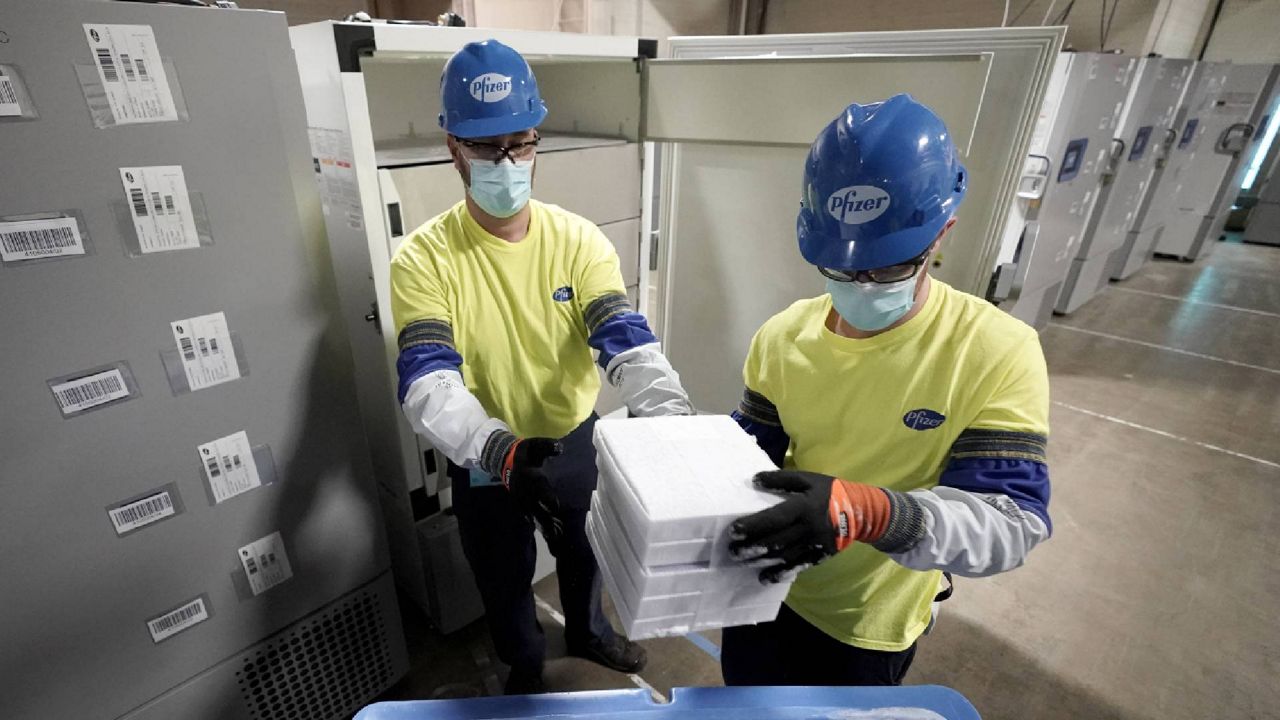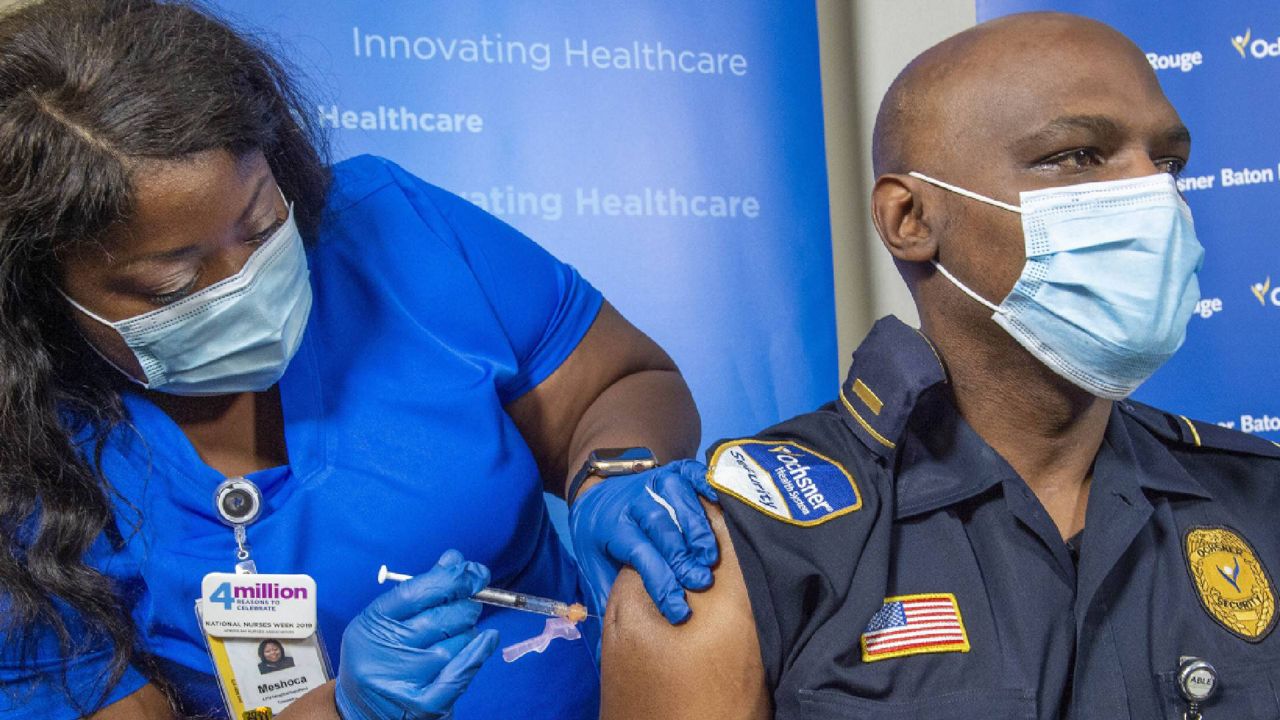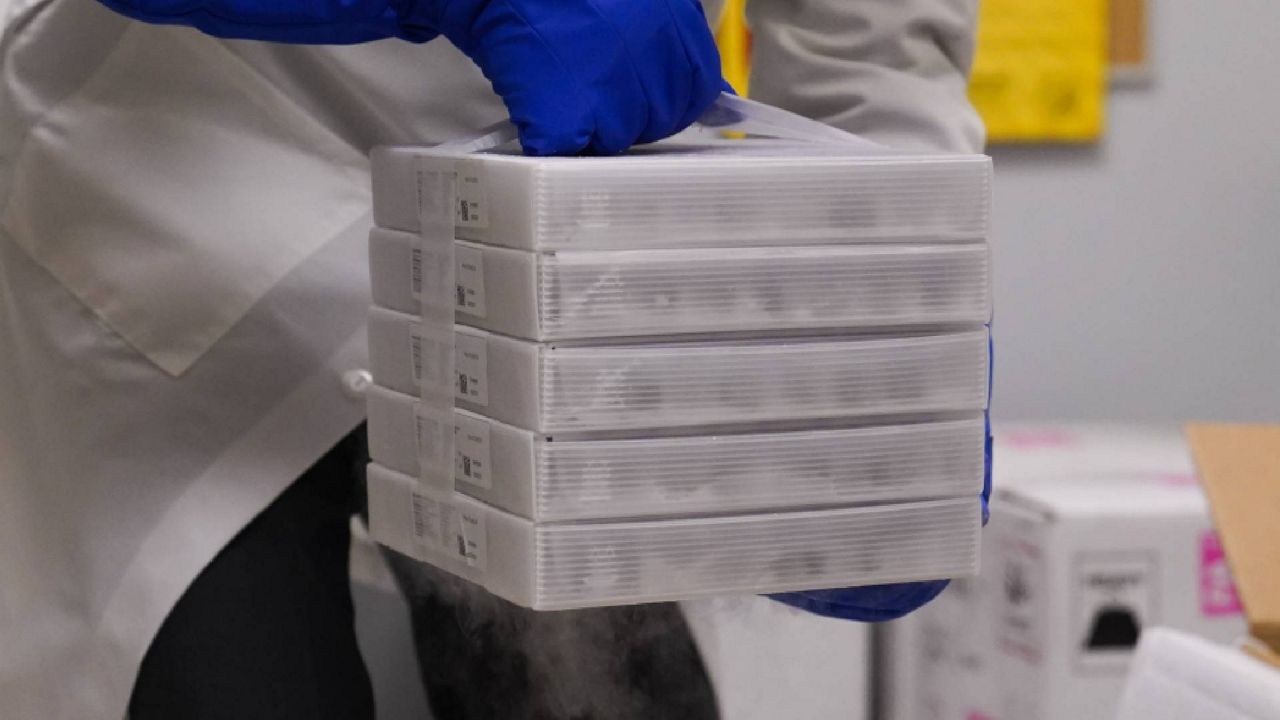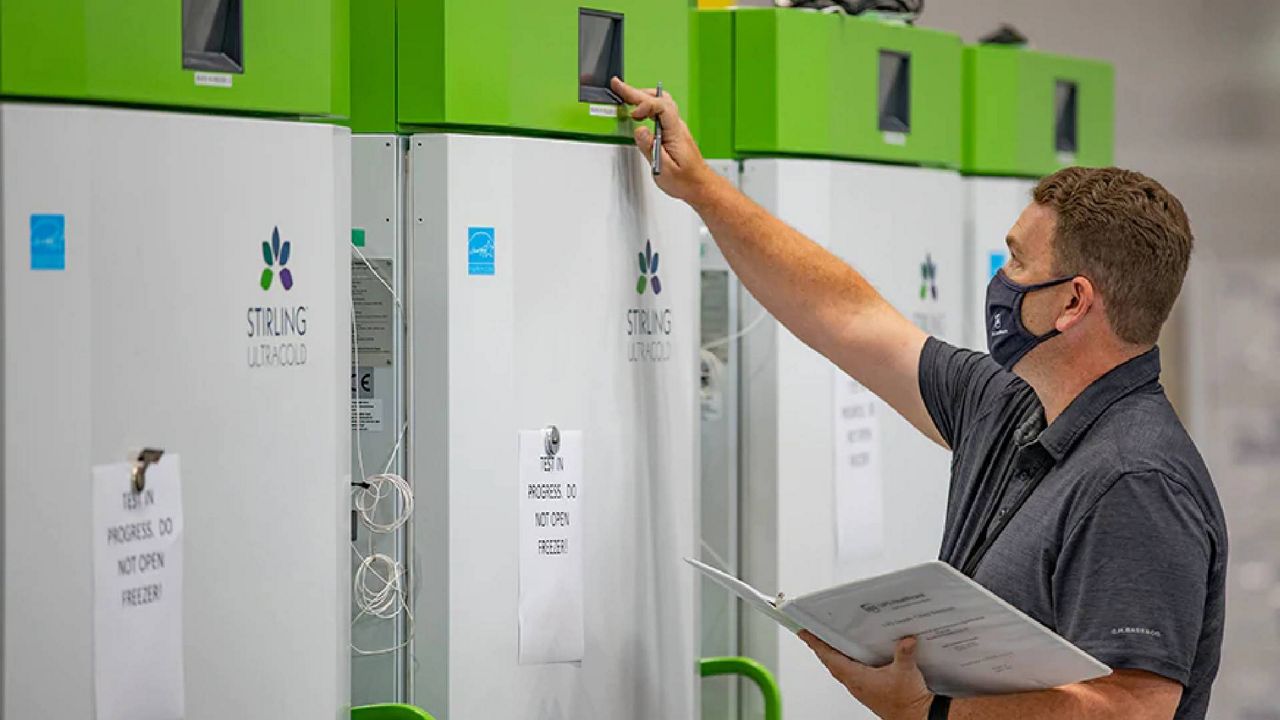An independent panel of advisers voted Thursday to recommend that the Food and Drug Administration authorize Pfizer and BioNTech’s vaccine, making it possible for the first doses to be shipped and administered as soon as early next week.
The recommendation is the final step before FDA officials decide whether to issue an emergency approval of the vaccine, and the decision is now in the hands of career officials at the agency.
If the FDA authorizes Pfizer’s vaccine, the first 2.9 million doses are set to ship out within 24 hours to U.S. states, territories and major cities.
“I think the safety is pretty well demonstrated,” said Dr. Cody Meissner, an infectious disease expert at Tufts University School of Medicine and committee member. “Balance that with over 2,000 deaths a day — I’m comfortable.”
In a 17 to 4 vote, the Vaccines and Related Biological Products Advisory Committee (VRBPAC) decided that the benefits of a Pfizer-BioNTech COVID-19 vaccine outweighed the risks for Americans 16 years of age and older.
Some committee members expressed concern about inclusion of 16 and 17-year-olds, since Pfizer’s data on children is very limited.
“Career staff will take the committee's input into account as they continue their review of the EUA request,” FDA Commissioner Stephen Hahn wrote in a statement Thursday.
The panel’s vote is a high point for a vaccine developed in less than eleven months, after BioNTech began researching in January and eventually partnered with Pfizer in March.
The shot’s technology — which uses messenger RNA (or mRNA) to create coronavirus spike proteins in the body and trigger an immune response — is new to widespread use, but experts consider it safe.
“FDA staff feel the responsibility to move as quickly as possible through the review process,” Commissioner Hahn said. “However, they know that they must carry out their mandate to protect the public health and to ensure that any authorized vaccine meets our rigorous standards.”
Ahead of the meeting, the FDA released its initial review of Pfizer’s data, which confirmed it is 95 percent efficacious and safe for most adults. But on Thursday, representatives for Pfizer and the FDA also faced questions about potential blindspots in the vaccine’s rollout and the need for continued trials.
A new question is whether the vaccine is potentially dangerous to those with a history of severe allergies.
On Wednesday, British officials flagged the issue after two people had anaphylactic reactions to the shot. Both carried an EpiPen for their allergies.
In Thursday’s meeting, panel members called for Pfizer to run further trials that include people with a severe history of allergies, in order to determine whether it's safe for them to get the shot.
“You’re talking about tens of millions of people who are not going to get this vaccine because of comments that were made,” said Dr. Paul Offit, Director of the Vaccine Education Center at the Children's Hospital of Philadelphia.
It’s not clear whether anaphylaxis is a common reaction to the vaccine, but the FDA has asked Pfizer to monitor it as an “important potential risk.”
U.K. regulators approved Pfizer’s vaccine last week and began vaccinating people on Tuesday, becoming the first Western nation to do so. Canada approved the vaccine Wednesday.
In order for Pfizer’s vaccine to be eligible for full FDA approval, it will continue various trials in the coming months. Trials would include studies about how the vaccine affects children under the age of 16 and pregnant women, two groups not thoroughly tested so far.
As many as 20 million Americans could be vaccinated by the end of the year, according to the timeline set by Operation Warp Speed, the administration’s accelerated plan to develop and distribute a vaccine.
After the initial 2.9 million doses, the shots will continue to roll out with “continuous cadence,” according to General Gustave Perna, who oversees distribution for Operation Warp Speed. General Perna said his team has tentatively planned for the first shipment to go out on Tuesday, Dec. 15.
The first vaccines will likely go to health care workers and residents of long-term care facilities, as recommended by the Centers for Disease Control and Prevention. In the past weeks, states have submitted detailed distribution plans, and it’s ultimately up to state and local officials who gets a shot first.
On Dec. 17, the same FDA panel will meet to review Moderna’s vaccine candidate, setting up for a second vaccine to be authorized one week after Pfizer’s.







